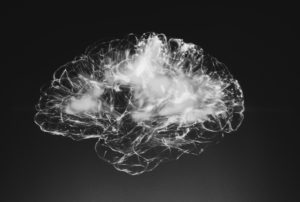What We Know About the Prevention and Treatment of Alzheimer’s Dementia
Following is the outline from a talk I gave in Palm Desert, California 9/20/19. The links connect back to the research from the talk. In future blog posts I may separate out some of the sections to discuss them further. And here’s a standard disclaimer that any research presented around treatment is for informational purposes only. Always discuss with your doctor any changes to your diet or supplements that you are interested in pursuing.
What do we know about potential causes and risk factors?
Blood sugar problems appear to be one core component of what causes or contributes to Alzheimer’s risk:
- Alzheimer’s has been described as diabetes type 3 (Mayo 2017)
- The “Alzheimer’s gene” APOE4 causes insulin resistance in the brain (in neurons)
- 20% of the population has APOE4, 50% of people with alzheimer’s have it
- Insulin appears to be involved in the production of the tangles and plaques in the brains of Alzheimer’s disease (Kandimalla 2017)
- Having diabetes increases risk of Alzheimer’s (Shinohara 2017)
Inflammation appears to contribute to risk of Alzheimer’s (Kinney 2018)
- Inflammation is present in the brain of Alzheimer’s patients
- Brain inflammation increases production of tangles and plaques in the brain
- Diabetes, but also obesity are both risk factors and both increase inflammation throughout the body, including in the brain
- Smoking appears to increase risks of dementia as well, likely through oxidative stress/inflammation in the brain (Durazzo 2014)
- Heart disease risk factors like cholesterol and triglycerides also raise risk for Alzheimer’s disease. These factors can be inflammatory, however we don’t know for sure if that’s the main mechanism in increasing Alzheimer’s risks (Broce 2019)
Diet plays a role
- The Mediterranean diet appears to decrease the risk of Alzheimer’s (Petersson 2016)
- A clinical trial of patients on the Mediterranean diet for five years showed increased cognitive performance as compared to a standard control diet (Valls-Pedret 2015)
- A small study on a modified Mediterranean ketogenic diet (high fat, very low carb) improved biomarkers in patients with mild cognitive impairment (Nagpal 2019)
- Ketosis (running on fat for energy) has been shown to improve cognitive function and stabilize blood sugar, although research on the ketogenic diet and Alzheimer’s is still limited (Rusek 2019)
- A case study with an APOE4+ patient in early mild cognitive impairment restored cognitive function in ten weeks on a ketogenic diet (Morrill 2019)
Use it or lose it
- Being physically active appears to help prevent Alzheimer’s and treat it in early stages with increased cognitive function, better mood and slower long-term decline (Cass 2017)
- Being mentally active appears to help prevent Alzheimer’s disease (Zhu 2019)
Is there an infectious component underlying Alzheimer’s disease?
- Alzheimer’s is transmissible if you take human brain tissue and inoculate monkeys they develop similar damage in the brain (Baker 1994, Ridley 2006)
- Evidence for viruses
- Herpes simplex 1 virus (HSV1) has numerous studies showing that it increases risks of Alzheimer’s disease, that it attacks the brain structures involved in Alzheimer’s, that it is present in the same brain locations as the physical damage in Alzheimer’s patients and that APOE4 may increase susceptibility to HSV1 infection (Itzhaki 2017)
- Other herpes family viruses (EBV, CMV, HSV2, others) may provoke similar problems in the brain (Sochacka 2017)
- There’s also evidence for bacterial infections causing Alzheimer’s
- Bacteria that cause gum disease appear implicated in Alzheimer’s (Sochacka 2017)
- Porphyromonas gingivalis (one of the bacteria that cause gum disease) has growing evidence for a role in causing Alzherimer’s disease. Oral infections in mice, led to brain infection and plaque production. Blocking the toxins these bacteria produce also protected the mouse brains from plaque production (Dominy 2019)
- Other bacteria are implicated as well from Chlamydia pneumoniae to Borrelia burgdorferi (lyme disease).
- In general, it appears that infectious agents that get into the brain increase inflammation and at the very least encourage the Alzheimer’s disease process even if they aren’t a direct cause.
So What Can We Do?
- Eat Healthy! Eating in ways that keep blood sugar and inflammation under control is crucial to help prevent Alzheimer’s. A Mediterranean diet, or possibly low carb/ketogenic diet may be useful for prevention and treatment
- Exercise
- Engage in mental stimulation
- Learn a new language
- Stay socially active
- Maintain good dental hygiene
- Brush and floss
- Use an oral irrigator or water pick (Jolkovsky 2015)
- Don’t smoke
Are There Any Supplements with Research Support?
- Melatonin: the sleep hormone (Shukla 2017)
- Huperzine A from Chinese Club Moss
- It increases acetylcholine in the brain by blocking it’s destruction
- Commonly used in China, the research is of mixed quality but appears to indicate improvements in dementia patients (Yang 2013)
- Acetyl-L-Carnitine
- Improves energy production by helping cells (mitochondria) burn fat for energy
- A meta-analysis showed acetyl-l-carnitine had modest but significant benefits in treating mild Alzheimer’s over placebo (Montgomery 2003)
- Phosphatidylserine
- A fatty compound important to the integrity of cell membranes
- In a double blind placebo controlled trial for moderate to severe cognitive impairment, phosphatidylserine was shown to significantly improve mood and cognition (Cenacchi 1993)
- Per the FDA: “Consumption of PS may reduce the risk of dementia in the elderly, as very limited and preliminary scientific research suggests that phosphatidylserine may reduce the risk of dementia in the elderly” (FDA, 2003).
- Other supplements that may have an impact include curcumin (Tang 2017), tea polyphenols (Cascella 2017), magnesium (Xue 2019), n-acetylcysteine (Deepmala 2015), selenium (Aaseth 2016), vitamin-D (Jia 2019), lipoic acid (de Sousa 2019), among others
Medication Treatment
- Acetylcholinesterase inhibitors (it stops the breakdown of acetylcholine, a neurotransmitter): donepezil (Aricept), rivastigmine (Exelon), galantamine (Razadyne)
- For mild to moderate Alzheimer’s
- Do not slow progression, just improve symptoms to a small degree (Birks 2018)
- NMDA antagonist (it blocks NMDA a neurotransmitter): memantine (Namenda)
- For more severe Alzheimer’s disease
- Effects sizes are also small, but still held significance (Kishi 2017)
Medications That Increase Risk
- Anticholinergic drugs significantly increase risk of dementia
- Anticholinergic antidepressants, antipsychotics, anti-epileptics, antiparkinson, and bladder antimuscarinic drugs can increase the risk of dementia by a factor of 1.5 (Coupland 2019)
- Benzodiazepines: diazepam (Valium), clonazepam (Klonopin), alprazolam (Xanax)
- Appear to raise risks similar to anticholinergic medications by a factor of ~1.5 (Zhong 2015)




Exactly
Nice post. I was checking continuously this blog and I’m impressed!
Extremely useful info specially the last part :)
I care for such info much. I was looking for this certain information for a very long time.
Thank you and good luck.